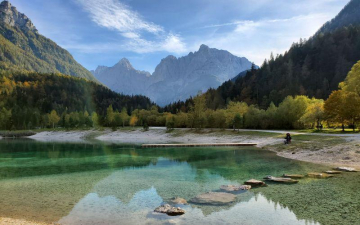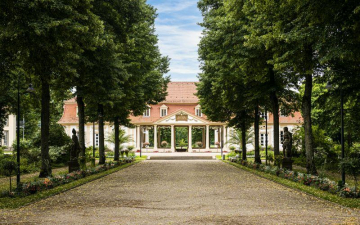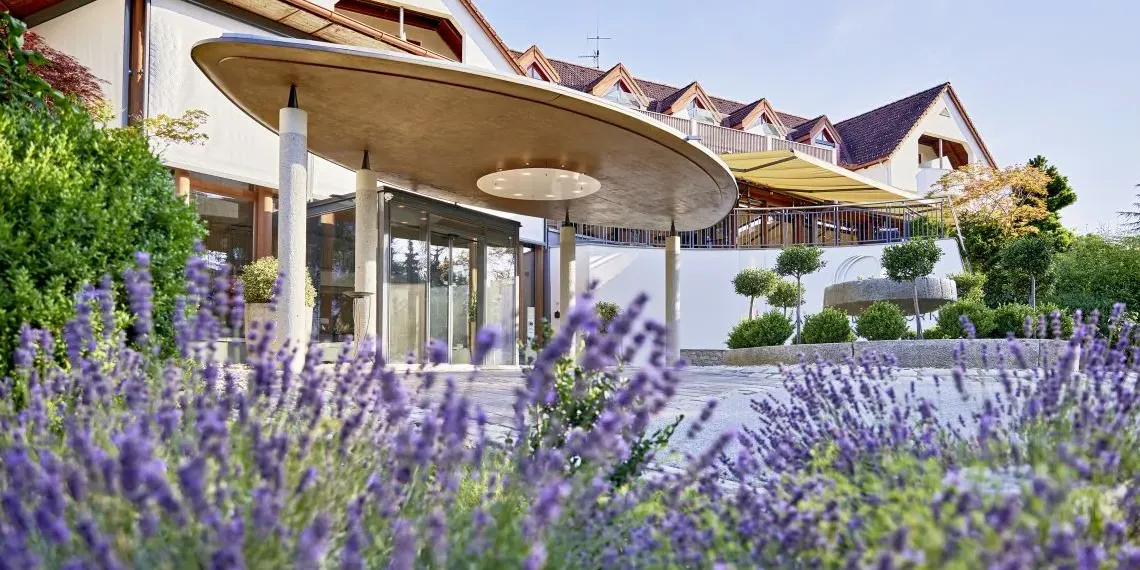Thermal water
Insiders tips



Discover all our Thermal Spa Holidays holidays

Perfect for those seeking relaxation and soothing spa treatments. Unwind in a serene setting, release tension and recharge your body and mind.
For those seeking more energy and vitality. Combine movement with relaxation and experience the perfect balance between fitness and spa.

Experience the healing power of Ayurveda with a personalised treatment plan tailored to your unique doshas. Daily therapies, customised nutrition and yoga restore deep balance, cleanse the body and rejuvenate body and mind

Experience the healing power of Ayurveda with a personalised treatment plan tailored to your unique doshas. Daily therapies, customised nutrition and yoga restore deep balance, cleanse the body and rejuvenate body and mind
Panchakarma is Ayurveda’s classic purification therapy. Through five deep-cleansing treatments, the body releases toxins, promoting physical lightness, mental clarity, and a renewed sense of balance from within
Thermal water or Hot springs
Thermal water has been used for centuries to treat a range of ailments, including arthritis, joint pain, burns, and most notably, skin conditions. Its purifying effects and antioxidant properties provide numerous health benefits.This naturally heated water originates from the earth’s geological processes and is often found in areas with volcanic activity or thin crusts, where geothermal heat rises to the surface. Thermal water is rich in minerals and trace elements, offering therapeutic benefits for various health concerns. Common minerals in thermal water include sulfur, magnesium, calcium, and potassium, each contributing unique health advantages. Sulfur is particularly effective for skin conditions like eczema and psoriasis, while magnesium is known to reduce stress and promote better sleep. Wellness centers and spas worldwide incorporate thermal water into treatments, showcasing its time-tested healing properties and natural restorative power.
The benefits of thermal springs
Mineral baths work wonders for your health—a fact recognized even by the ancient Romans, who regularly immersed themselves in these restorative waters for healing. The water is sourced from deep underground springs, where it becomes naturally purified and enriched with minerals as it rises to the surface. The mineral composition of each spring varies, depending on the surrounding geology. This uniqueness means every thermal spring offers a distinct combination of minerals, each delivering specific therapeutic effects. Some hot springs are particularly effective for alleviating rheumatism, pain, or skin conditions, while others are beneficial for treating infections, digestive issues, or nervous system ailments. Many health resorts incorporate thermal water into their therapies, a practice known as balneotherapy. These treatments provide a luxurious and relaxing environment to improve your health and overall well-being. A health-focused holiday featuring mineral water can offer various benefits, including:
- Improved Skin Health: The minerals and trace elements in mineral water can help to improve skin health by promoting cell regeneration and collagen production.
- Stress Relief: A health holiday with mineral water can provide a relaxing and rejuvenating experience, helping to reduce stress levels and promote overall well-being.
- Joint Pain Relief: Drinking mineral water can help to alleviate joint pain and stiffness, as the minerals and trace elements in the water can help to improve joint mobility and reduce inflammation.
- Improve Immunity: Mineral water contains various minerals and trace elements that can help to boost the immune system, improving overall health and reducing the risk of illness.
- Improved Digestion: Drinking mineral water can help improve digestion and relieve digestive problems such as bloating, constipation, and stomach pain.
- Detoxification: Mineral water contains various minerals and trace elements that can help to detoxify the body by eliminating harmful toxins and waste products.
- Rehydration: Mineral water is rich in essential minerals and electrolytes, which help to replenish lost fluids and electrolytes in the body, promoting optimal hydration.
A health holiday with mineral water can be an excellent way to improve health and well-being, providing a relaxing and rejuvenating experience that can have lasting benefits for the body and mind.
What is Balneotherapy
Balneotherapy, also known as hydrotherapy, is a type of alternative medicine that involves the use of mineral water for therapeutic purposes. It has been used for thousands of years in various cultures around the world and involves the use of natural mineral waters, such as hot springs, or other water-based treatments, such as whirlpool baths, saunas, or steam baths. The primary aim of balneotherapy is to promote physical and mental relaxation, relieve stress, and improve overall health and well-being. It is believed that the various minerals and trace elements found in natural mineral waters can have therapeutic effects on the body, such as reducing inflammation, improving circulation, and relieving pain. Balneotherapy is often used to treat a variety of conditions, including rheumatoid arthritis, osteoarthritis, fibromyalgia, chronic pain and skin disorders. It is also commonly used as a complementary therapy for conditions such as anxiety, depression, and stress-related disorders.
Balneotherapy is considered a safe and effective therapy for many health conditions and is often used in combination with other treatments, such as massage, acupuncture or physical therapy, to provide a holistic approach to health and wellness.
What to expect from a Health Resort with thermal springs
Hot springs can be a great way to relax, unwind and improve your health. Hot springs are natural bodies of water that are heated by geothermal activity. They are known for their healing properties and have been used for therapeutic purposes for centuries. Here are some of the ways that hot springs may have healing powers:
- Relaxation: The warm water and peaceful surroundings of a hot spring can promote relaxation and reduce stress levels, which can have a positive impact on mental and physical health.
- Pain relief: Hot springs contain minerals such as sulfur, magnesium, and calcium, which are known for their pain-relieving properties. Soaking in hot springs can help to alleviate muscle and joint pain, as well as reduce inflammation.
- Improved circulation: The heat from hot springs can improve blood flow and oxygenation, which can help to promote healing and reduce inflammation.
- Skin health: The minerals found in hot springs can also be beneficial for the skin. Soaking in hot springs can help to exfoliate the skin, reduce inflammation, and improve overall skin health.
- Detoxification: Hot springs can help to flush toxins from the body by opening up the pores and promoting sweating.

 EN
EN NL
NL BE
BE







